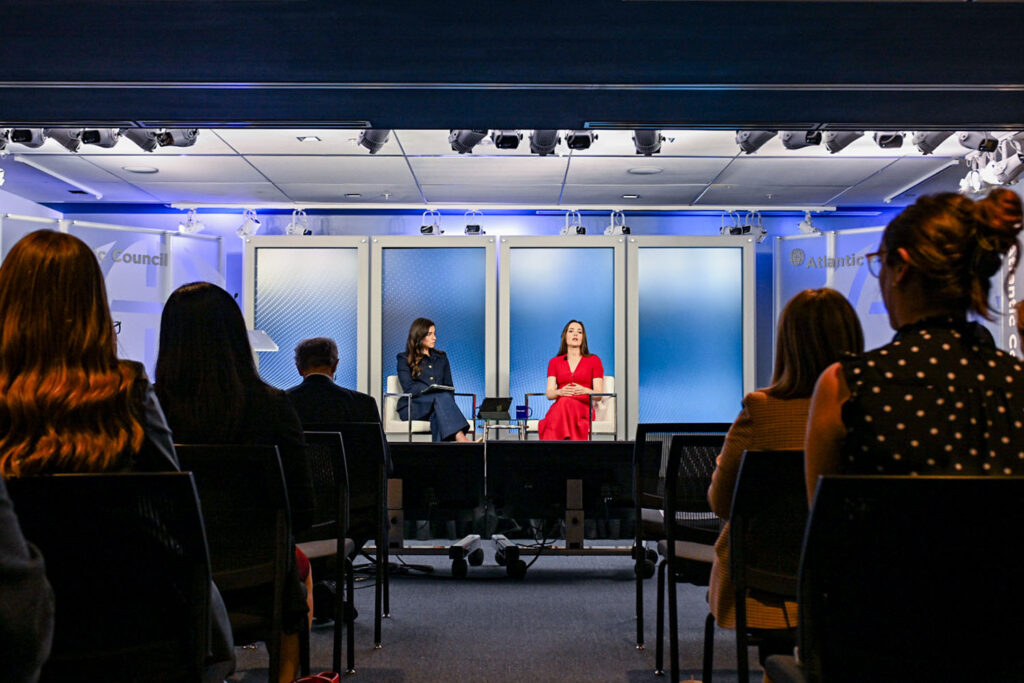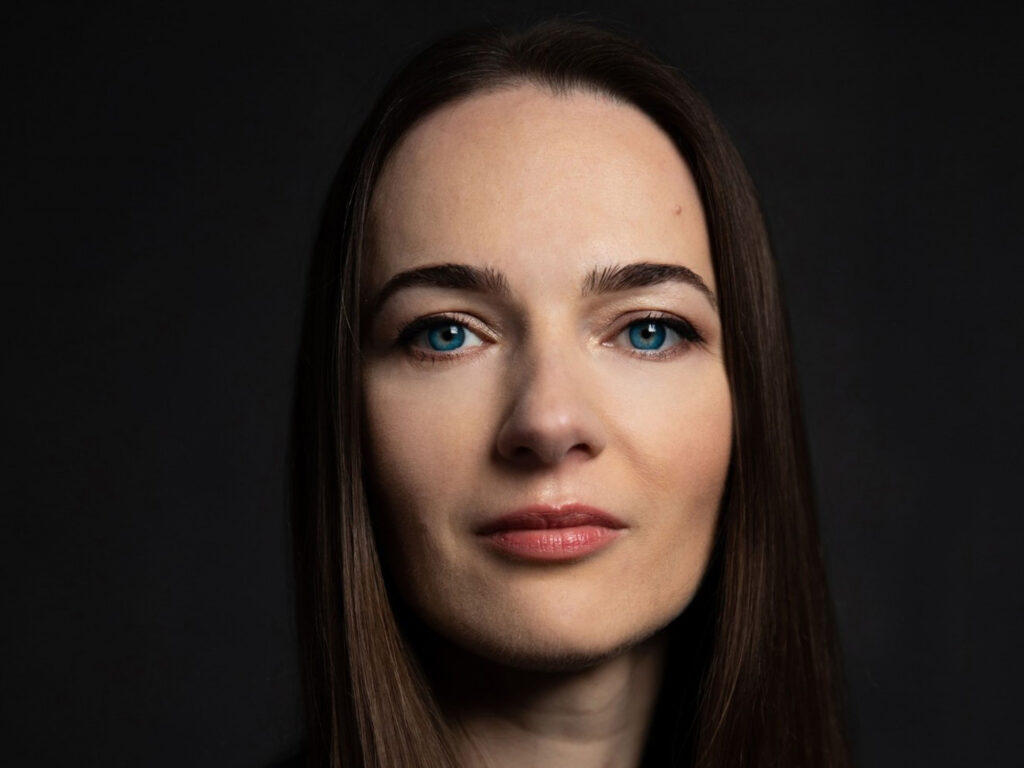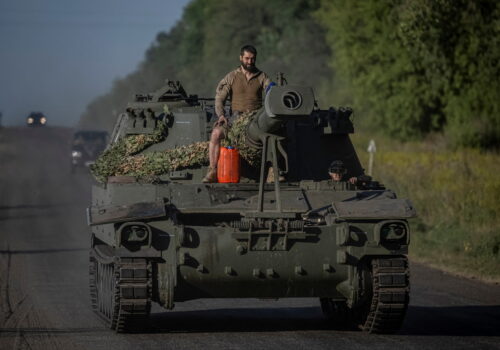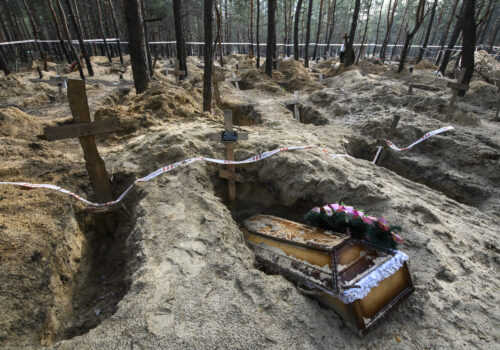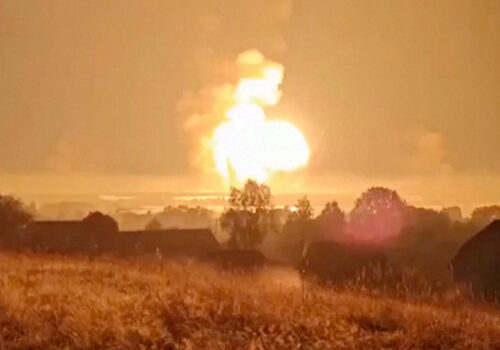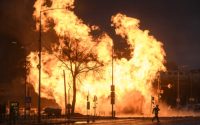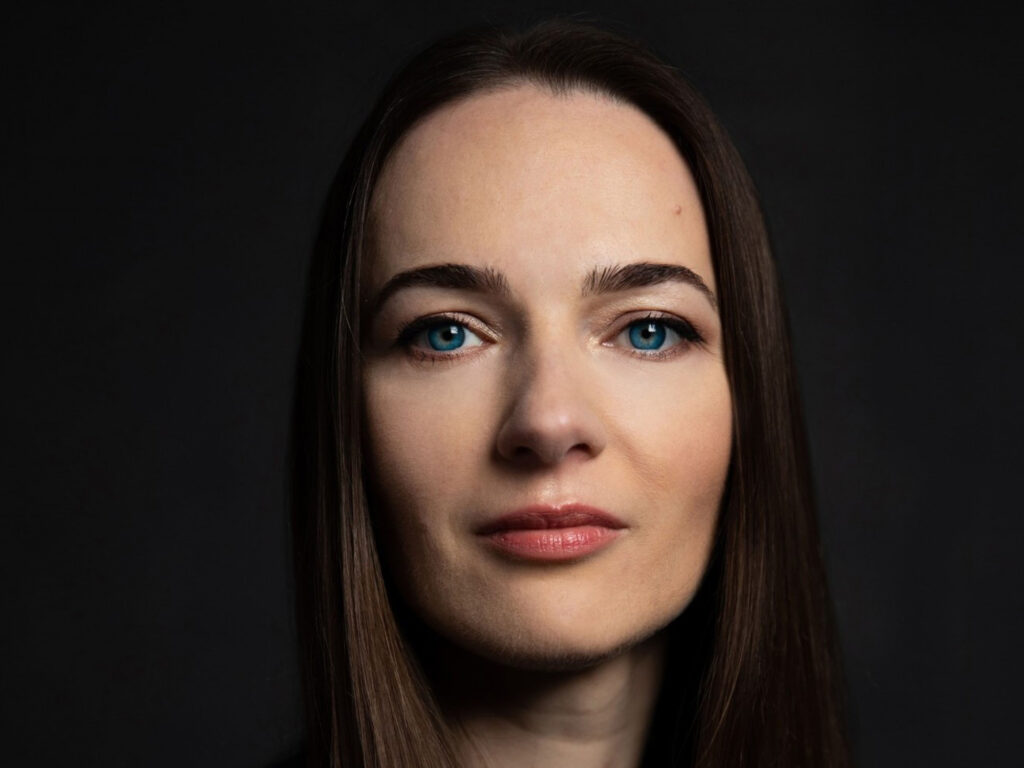
Nobel Peace Prize winner Oleksandra Matviichuk wants to ‘restart’ the international peace system
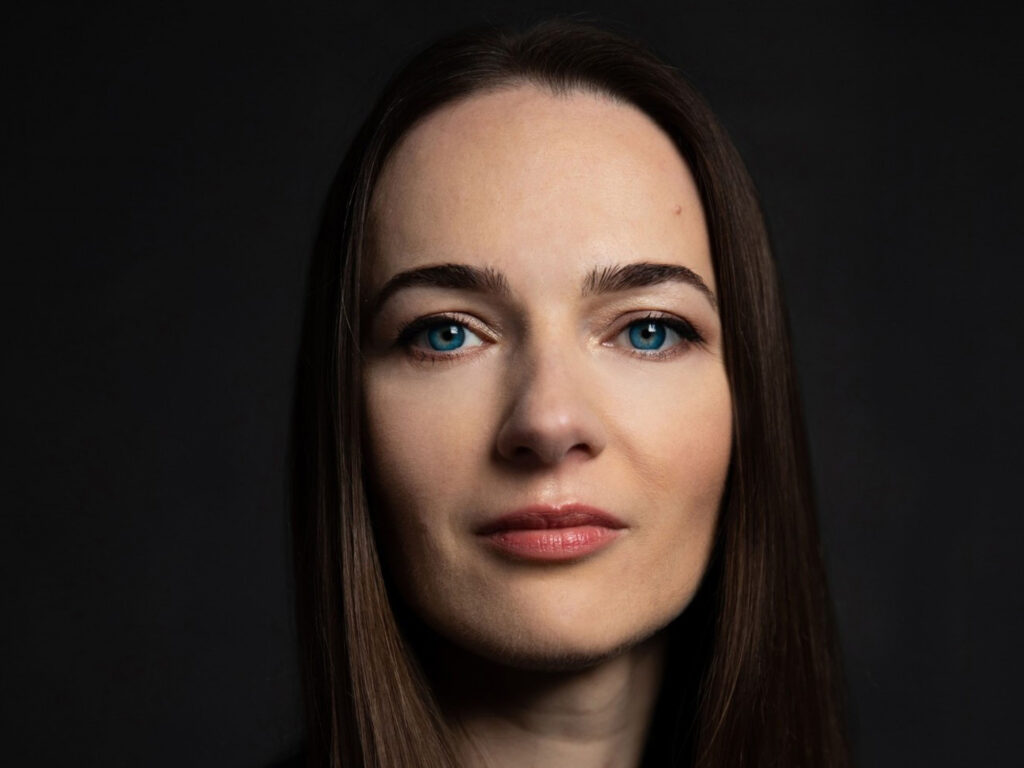
Watch the full event
“People in Ukraine want peace, but peace doesn’t come when a country which was invaded [stops] fighting,” said human rights activist Oleksandra Matviichuk. “That’s not peace. That’s occupation.”
At an Atlantic Council Front Page event on Tuesday, Matviichuk—winner of the 2022 Nobel Peace Prize and head of the Center for Civil Liberties in Ukraine—detailed what countries endure under Russian occupation, based on what Ukraine has faced: “torture, rape and forced disappearances, denial of your identity, forcible adoption of your own children, filtration camps, and mass graves,” she said.
Matviichuk, as a coordinator of Euromaidan SOS, has joined activists and organizations across Ukraine in documenting Russian war crimes taking place during the war. She said the group has documented over eighty thousand thus far. “But that’s just the tip of the iceberg,” she said.
“There is no legitimate reason in doing such things; there is also no military necessity in it,” she added. “Russians have done these horrible things only because they could.”
Below are more highlights from the conversation, moderated by NBC News Congressional Correspondent Julie Tsirkin.
A new precedent
- “Ukraine is just a tool” for Russian President Vladimir Putin to “break the world order” and to “change the rules of the game by force,” Matviichuk argued. She explained that through the war in Ukraine, Putin is trying to convince the world that human rights and freedom can’t “protect anyone” from war—and thus are “fake values.”
- If he succeeds, she added, “it will encourage other authoritarian leaders . . . to do the same.” She pointed out how Ukraine is being hit by Iranian drones, how China has supported Russia’s defense industry, and how North Korea reportedly has sent both munitions and personnel to Russia.
- That authoritarian alliance, coupled with Russia’s “total impunity” on the world stage—after having committed crimes from Ukraine to Mali to Syria and beyond without punishment—has global consequences, Matviichuk argued. The world order is “collapsing before our eyes,” and the international peace system is outdated, she warned. “We have to restart this system.”
- Ukraine, she argued, could set a precedent similar to the post-World War II Nuremberg trials. “We have to establish a special tribunal on aggression now and hold Putin, [Belarusian dictator Alyaksandr Lukashenka], and other criminals accountable, and this precedent will be used for other parts of the globe in the future.”
- On whether the United Nations or the International Criminal Court will offer the avenues to hold Putin accountable, Matviichuk said, “I have hope, but hope is not a strategy. We need a strategy, and we need decisive action.”
“Extraordinary” powered by “ordinary”
- Matviichuk commended the work of “ordinary people” in Ukraine who are doing “extraordinary things,” surviving under artillery fire, conducting rescues, and providing humanitarian aid. In other countries, “ordinary people” are hosting refugees and urging their governments to provide Ukraine with weapons, she added.
- Reflecting on that support, and on what she has seen in humanitarian law over the past twenty years, she argued that “when you can’t rely on the legal instruments or international guarantees or the UN system of peace and security, you can still rely on people. . . . Ordinary people can have a much greater impact than they can even imagine.”
- But Matviichuk argued that those in charge in Western capitals have much more to do: granting Ukraine the ability to strike facilities in Russia with US-provided weapons, channeling immobilized Russian assets for Ukraine’s defense needs, and closing the “back door” that Russia has used to avoid sanctions. “We still find, in planes and drones, the elements from American companies, from [German] companies, from [Swiss] companies,” she said.
- But above all that, “we need to set a common goal,” she argued, explaining that rather than to help Ukraine avoid failure, the goal should be “let’s help Ukraine to win.”
“The human dimension”
- Matviichuk said that regardless of who wins the US presidential election, “Ukrainians will continue our fight for freedom.” She explained that as Putin has targeted all aspects of Ukraine, including its culture, “we have no choice. If we stop fighting, it will be no more us.”
- “It’s very important . . . not to lose [the] human dimension,” she added. Throughout the conversation, she told harrowing stories about Ukrainian women and children who faced horrific circumstances, including a young girl who dug through rubble to try to save her mother.
- Matviichuk praised the work of Ukrainian women, many of whom have assisted the war effort, doing everything from joining the armed forces to documenting war crimes. “Ukrainian women are in the forefront of this battle for freedom and for democracy, because bravery has no gender.”
- “We are human beings, we are not gods,” she said. “But together we are [drops] in the ocean, and the ocean can change history.”
Katherine Walla is an associate director of editorial at the Atlantic Council.
Watch the full event
Further reading
Thu, Oct 10, 2024
Putin doesn’t have enough troops to defeat Ukraine and defend Russia
UkraineAlert By Peter Dickinson
The Ukrainian invasion of Russia’s Kursk region has proved that Putin’s attempt to conquer Ukraine has left his army dangerously overstretched and unable to defend Russia itself, writes Peter Dickinson.
Tue, Oct 8, 2024
Ending Russian impunity: Why Ukraine needs justice as well as security
UkraineAlert By Kateryna Odarchenko, Lesia Zaburanna
Failing to hold Russia accountable for war crimes committed in Ukraine would set a disastrous precedent for the future of international security and would create the conditions for more war, write Kateryna Odarchenko and Lesia Zaburanna.
Thu, Oct 3, 2024
Kyiv’s allies should boost Ukraine’s ability to strike deep inside Russia
UkraineAlert By David Kirichenko
With Kyiv’s partners still reluctant to lift restrictions on attacks inside Russia using Western weapons, one obvious solution would be to enhance Ukraine’s ability to strike Russian targets using domestically-produced Ukrainian weapons, writes David Kirichenko.
Image: Oleksandra Matviichuk speaks at an Atlantic Council Front Page event on October 15, 2024.
